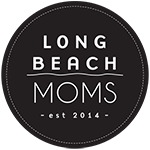Maple Village Waldorf School: Local Alternative Educational Option Results In Thriving Students
Challenges with traditional education that have been minimized for years were seen up close and personal when parents suddenly found the classroom in their homes during the pandemic. As classes returned to in-person, parents were faced with a decision to continue with the status quo or look for an alternative educational path for their children. Many have chosen an alternative.
One local school seems to be getting it right. Maple Village Waldorf School (MVWS), an independent school located in the residential Belmont Heights area of Long Beach, has seen its enrollment numbers increase dramatically over the past three years, largely due to parents wanting an educational experience that emphasizes creativity, individual expression, and interdisciplinary learning for their children.
As our understanding of cognitive science and human development advances, a national conversation has begun about how to fix the issues with traditional education. People are discussing “new” solutions such as moving away from early, pressure-cooker academics, less homework and more time outside in nature, the importance of handwriting, longer-term relationships of teachers with a class of students, less emphasis on standardized testing and less screen time, just to name a few. None of these ideas are new within the Waldorf Education environment. In fact, the philosophy has over 100 years of history and practice, yet it is as fresh and relevant today as ever.
One local physician and parent, Aisha S., shared, “The emphasis on kindness, inclusion, and empathy is palpable upon entering the gates. The teachers and staff truly love the children. I changed work locations, and we finally moved to Long Beach just to be closer to the school and community.”
Maple Village serves over 200 children from early childhood through the 8th grade and is proud to be one of the most diverse Waldorf schools in the country. They follow a curriculum developed by Rudolf Steiner that fosters the human spirit in children, allowing them to flourish in a holistic learning environment oriented toward moral growth, social consciousness, and citizenship.
Traditional education tends to rely on textbooks paired with worksheets and lectures to bring the curriculum to the students, while Waldorf Education takes a more active, hands-on approach that encourages intention and creativity. At the beginning of a grades class, students are asked to take out their main lesson book, a large notebook filled with blank pages ready for the students to draw, write, or take notes on various subjects presented by the teacher. By having the students create their own books, they are building neural pathways and strengthening listening and recording skills while giving them the opportunity for self-expression and personalization. The students develop a more profound knowledge of what is being taught and establish a sense of pride and connection to their work.
Local business owner and parent Anna B. added, “It is a school that not only nurtures the educational aspects, you know, literature and math, but they truly nurture and cultivate a sense of community, empathy, independence, and creativity. Something I see as so necessary, especially in the world that we live in today.”
Maple Village honors the myriad ways that students learn by teaching visually, auditorily, and kinesthetically through art, music, storytelling, games, experimentation, and practical arts. For example, the building blocks of math may be presented first in the classroom with a story or song along with a beautiful chalkboard drawing before heading to the kitchen to measure ingredients and bake muffins. Through the years, those building blocks emerge into an understanding of algebra and geometry, which is often displayed through beautiful designs in the students’ books.
Waldorf Education also emphasizes connectedness to the larger community and environment. Dean of Education Lisa McCarthy explains, “If you don’t experience nature, you won’t value it. Our children are very connected to the outside world, going on class camping trips, visiting farms and the coast, and spending time at Long Beach’s beautiful parks every week. They understand what they do at school has an impact on their immediate surroundings.”
Because of its commitment to the environment and sustainability, Maple Village Waldorf School is recognized by the U.S Department of Education as a Green Ribbon School and as a Green Business by the City of Long Beach. Waldorf Education embeds respect and care for the environment into the curriculum. From gardening and harvesting beginning in preschool to composting, cooking, spinning wool, and making things from scratch in the older grades, students learn to respect and appreciate the world around them.
We are just starting to understand the many ways in which the pandemic has affected students. Schools like Maple Village Waldorf School are finding success by doing what they have always done, utilizing an integrative approach to educating the whole child.





